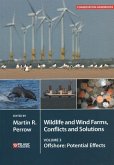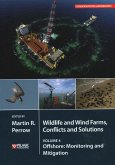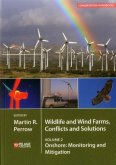In today's world, clean and robust energy sources are being sought to provide power to residences, commercial operations, and manufacturing enterprises. Among the most appealing energy sources is wind power-with its high reliability and low environmental impact. Wind power's rapid penetration into markets throughout the world has taken many forms, and this book discusses the types of wind power, as well as the appropriate decisions that need to be made regarding wind power design, testing, installation, and analysis. Inside, the authors detail the design of various small-wind systems including horizontal-axis wind turbines (HAWTs) and vertical-axis wind turbines (VAWTs). The design of wind turbines takes advantage of many avenues of investigation, all of which are included in the book. Analytical methods that have been developed over the past few decades are major methods used for design. Alternatively, experimentation (typically using scaled models in wind tunnels) and numerical simulation (using modern computational fluid dynamic software) are also used and will be dealt with in depth. In addition to the analysis of wind turbine performance, it is important for users to assess the economic benefits of using wind power. An entire chapter of this book is devoted to this topic, as well as case studies that help elucidate the issues that you'll need to consider, from siting and mechanical complications, to performance and maintenance.
Hinweis: Dieser Artikel kann nur an eine deutsche Lieferadresse ausgeliefert werden.
Hinweis: Dieser Artikel kann nur an eine deutsche Lieferadresse ausgeliefert werden.








